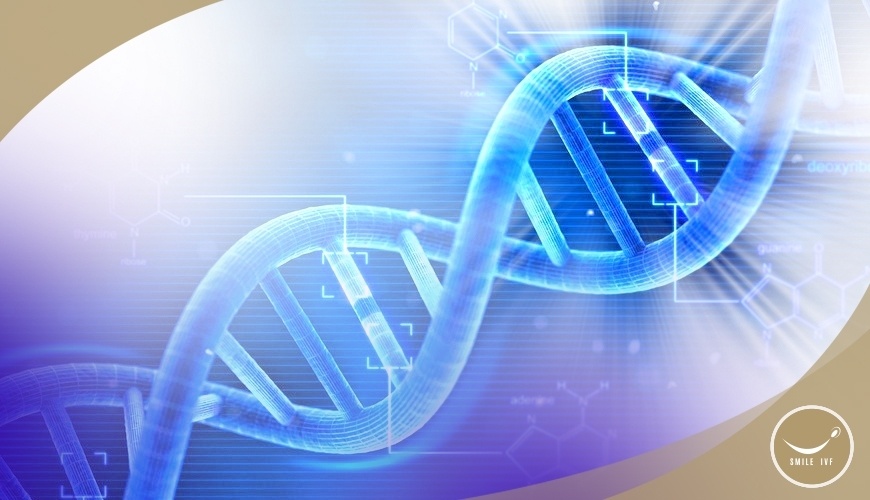
Chromosomal abnormalities in embryos are a primary cause of miscarriage during the first trimester, accounting for up to 60% of all spontaneous miscarriages. Fortunately, advancements in fertility treatment technology now allow us to genetically analyze embryos before they are transferred back into the uterus. This significantly increases the chances of a successful pregnancy with a healthy baby and reduces the rate of miscarriage due to genetic abnormalities in the fetus.
The human body typically contains 23 pairs of chromosomes, totaling 46 individual chromosomes. Of these, pairs 1-22 are autosomes, which control various genetic traits and physical characteristics. The 23rd pair consists of sex chromosomes, which determine an individual’s biological sex.
Chromosomal abnormalities can be categorized into two main types:
Numerical Abnormalities: These involve an incorrect number of chromosomes. Such abnormalities can lead to physical or intellectual disabilities. For example:
An extra chromosome 21 causes Down Syndrome.
An extra chromosome 13 causes Patau Syndrome.
An extra chromosome 18 causes Edwards Syndrome.
Structural Abnormalities: These involve changes in the structure of the chromosomes, such as a translocation, where parts of chromosomes are swapped. Structural abnormalities can lead to the formation of abnormal reproductive cells, often resulting in infertility and recurrent miscarriage.
Understanding these chromosomal variations is crucial in diagnosing and addressing fertility challenges.
Genetic analysis for chromosomal abnormalities can be performed using a method known as Preimplantation Genetic Screening (PGS), now more commonly referred to as Preimplantation Genetic Testing for Aneuploidy (PGT-A). This test identifies genetic conditions caused by an incorrect number of chromosomes (either missing or extra).
Additionally, PGT-A can also detect cases of chromosomal translocations, where parts of chromosomes have swapped positions.
At Smile IVF Clinic, we utilize the advanced Next-Generation Sequencing (NGS) Technique for analyzing chromosomal abnormalities, offering precise and comprehensive results.
Next-Generation Sequencing (NGS) is a cutting-edge technology that provides highly detailed information about the base sequence of chromosomes. This allows for an in-depth analysis of all 24 types of chromosomes.
At Smile IVF Clinic, we utilize NGS to meticulously screen for chromosomal abnormalities in embryos before they are transferred into the uterus. The primary goals of this advanced genetic testing are to:
Increase the success rate of pregnancy.
Ensure the birth of a healthy, normal baby.
Significantly reduce the risk of miscarriage.
NGS helps identify embryos with the correct chromosomal makeup, thereby maximizing your chances of a successful and healthy pregnancy journey.
Embryo chromosome screening, such as PGT-A using NGS technology, is highly recommended for couples who fall into the following categories:
Women over 35 years old: There’s a significantly higher risk of having a child with chromosomal abnormalities at this age.
Couples with a history of having a child born with chromosomal abnormalities.
Couples with a history of two or more miscarriages before 12 weeks of pregnancy.
Male or female partners with a family history of genetic disorders.
Couples who have undergone two or more unsuccessful IVF cycles.
This advanced screening can significantly increase your chances of a successful pregnancy and a healthy baby by helping us select the most viable embryos.
Genes are the fundamental units of heredity, made up of Deoxyribonucleic Acid (DNA). Thousands to millions of genes combine to form DNA strands, which coil tightly to become chromosomes. Humans are estimated to have about 20,000-25,000 genes.
Changes in the composition of genetic material (DNA) cause genes to alter. When these altered genes are passed to the next generation, they can lead to different characteristics or, more significantly, genetic disorders. These disorders are broadly classified into two groups:
Single Gene Disorders: These result from a mutation in a single gene and can be inherited through dominant or recessive genes. Examples include:
Thalassemia (a blood disorder)
Duchenne Muscular Dystrophy (a muscle-wasting disease)
Cystic Fibrosis (affecting various organs, especially lungs)
Certain respiratory diseases
Multiple Gene/Multifactorial Disorders: These are complex conditions influenced by multiple genes and environmental or lifestyle factors. Examples include:
Heart disease
Alzheimer’s disease
Diabetes
Cancer
Obesity
Preimplantation Genetic Testing for Monogenic Disease (PGT-M) is a specialized diagnostic test performed on embryos before implantation. At Smile IVF Clinic, we offer PGT-M to analyze embryos for specific gene mutations that cause single gene disorders. This allows us to identify and select embryos unaffected by these conditions, preventing the inheritance of such diseases by your children.
By utilizing PGT-M, we can help families at risk avoid passing on specific genetic conditions, increasing the likelihood of a healthy pregnancy and a healthy baby.